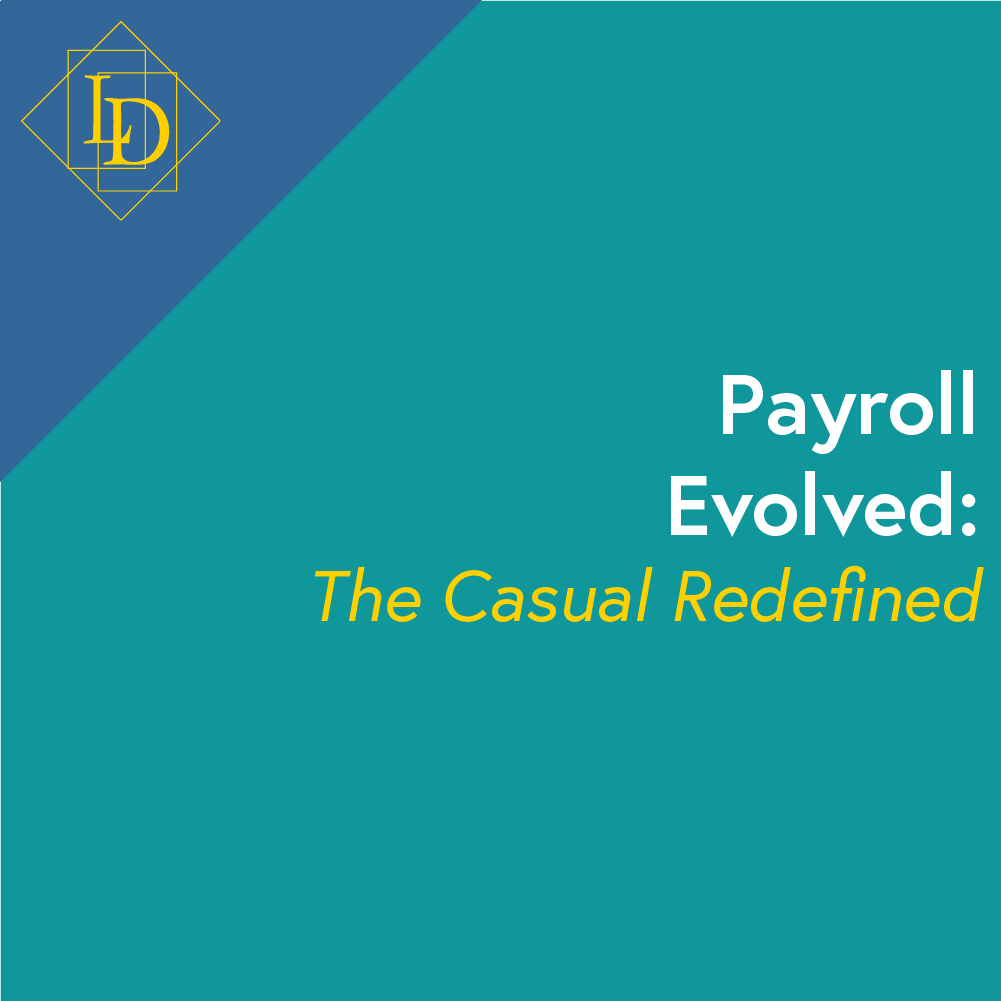
The Evolution of Payroll
It seems that there is something new every week. Something else for an employer to cope with. It’s a frustration likely felt by every business person - 'We got into business to ‘do our thing’, I didn’t sign up for all this admin that comes with employing someone'. Unfortunately, when you need to take on employees – by default we are signing up for all that administration. (Think what its like for your local payroll software developer who needs to turn all that legislation into workable software to try and make your day easier.)
What has happened in the recent past:
JobMaker
In short, JobMaker is the latest Federal Government Wage Subsidy assistance. Employers can receive up to $200 per week, per eligible new employee, for up to a year.
The application is made through the Australia Taxation Office (ATO) Portal, but it is expecting ongoing information to be submitted via your Single-Touch-Payroll (STP) compliant Payroll Software.
Read all the details from the ATO.
Redefined – Casual employment
With the challenges of Covid-19 and what it meant for job security, the Federal Government were seeking to provide a way to better protect people who were employed as a casual. Covid-19 hit us all hard. For those businesses that had to close abruptly, the income stream stopped just as quickly. Casuals got cut off immediately too. Those permanents, with leave owing – in theory were able to live on that for a while, assuming their employers could find some money under the couch. Those employed by big-business felt exploited.
Writing legislation to better protect everyone proved to be a minefield. The bottom line is that nothing much has changed when it comes to being a casual – except, now there is a better definition of what a casual is. And a ‘stronger recommendation' for businesses to offer permanent employment to a casual employee who has had regular and expected shifts for 12 months. Small businesses have an exemption from this ‘stronger recommendation’.
A casual employee is defined as someone: who does not have a firm commitment in advance from an employer about how long they will be employed for, or the days (or hours) they will work. A casual employee also does not commit to all work an employer might offer.
For example, an employee who works to a roster that could change each week and can refuse or swap shifts is casual.
A casual employee:
- has no guaranteed hours of work
- usually works irregular hours
- doesn't get paid sick or annual leave
- can end employment without notice, unless notice is required by a registered agreement, award or employment contract.
For that definition and related discussion, see Fairwork Australia.
It is still perfectly allowable for employees to be casuals for years – as long as they are receiving their 25% loading on their wages compared to others doing the same job as a permanent for that employer. This loading is their compensation for not receiving paid personal and annual leave. Casuals are able to take – unpaid – personal leave, carer, bereavement leave, and annual leave, without jeopardising their employment. As per the permanent staff, annual leave is booked at a mutually beneficial time with your employer.
Long term casual employees have rights, similar to that of a permanent. The more regular your shifts, the longer you work for the same employer – you can’t be dismissed unfairly or without grounds. For example, as a casual, it may be easier to get ‘spontaneous’ leave BUT if you become unreliable and your tasks are not getting done, this is grounds for fair dismissal.
Overall, for employees working regular shifts: permanents get paid leave; casuals get a loading on their pay instead. Both do get paid Long Service Leave if they have worked continuously for that employer for the period specified by your State Government.
What does this mean for you as a Casual Employee, or for you as an Employer who has casuals? The safest course for everyone – have a written agreement that meets the requirements of your Award or other Employment Legislation. That outlines what will happen as employment moves from short term to long term, for example, whether becoming permanent is feasible for the business after 12 months.
LD-Payroll is JobMaker ready and doesn’t require any modification. If you need help with JobMaker, Logical Developments can assist you to set it up.
LD-Payroll relies on your preference settings for the company and each employee. As LD-Payroll is a general package that is not tied to a particular Award or industry, it is recommended that you review your pay-rates annually to ensure compliance with the Award or other Employment Legislation that your organisation falls under.